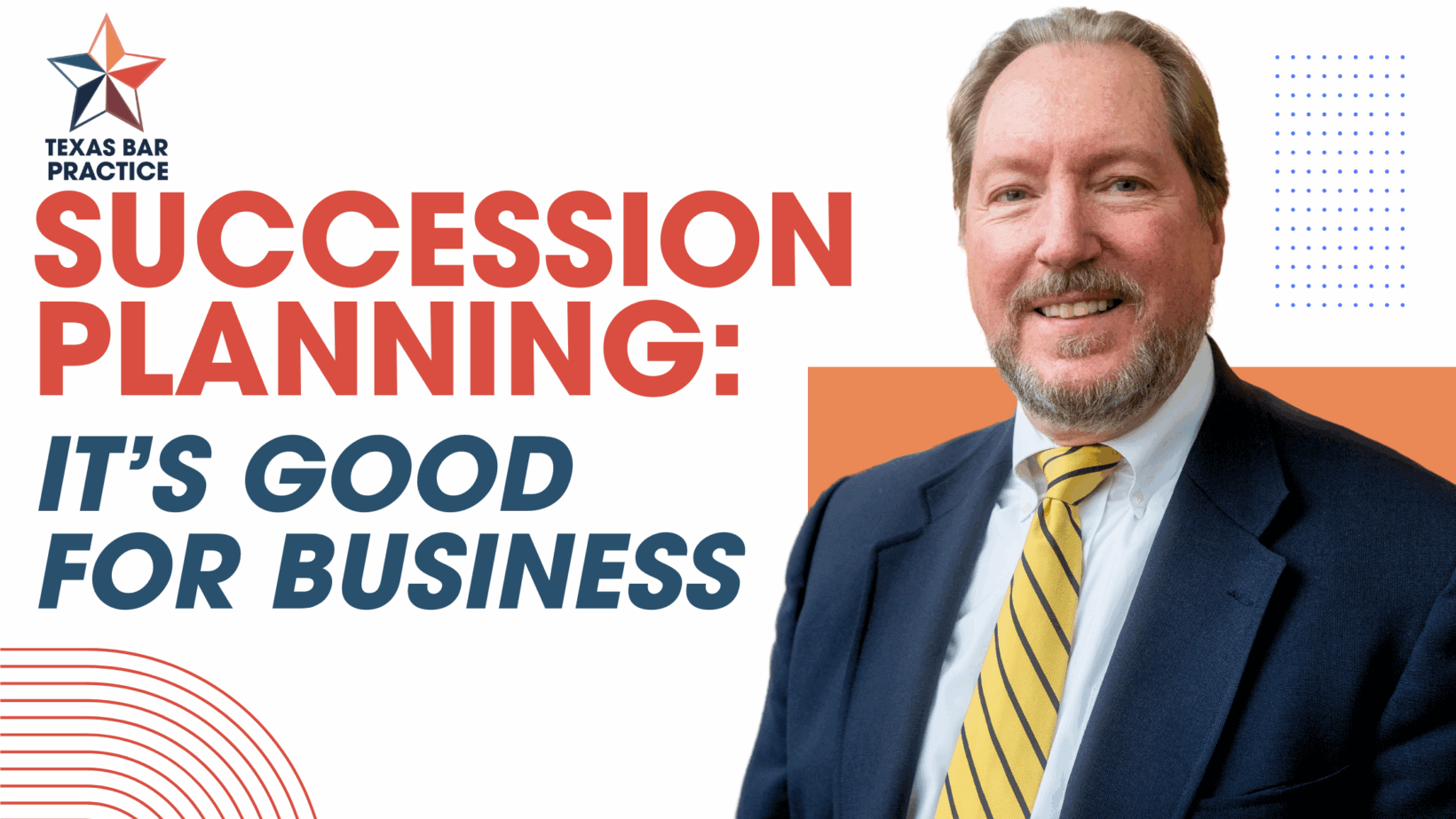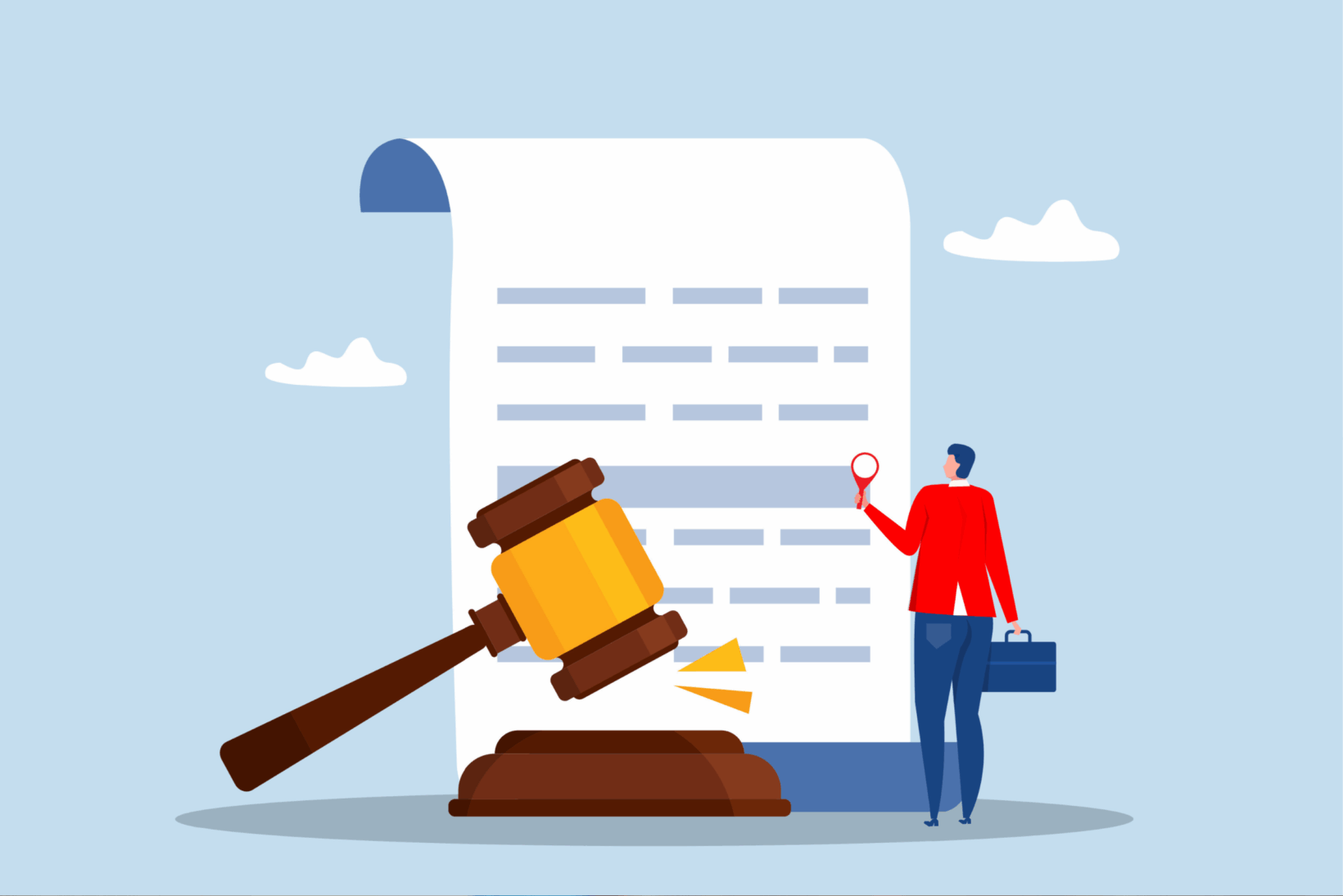Law Practice Management |Law Practice ManagementPractice Tips on File DestructionWritten byThe LPM DepartmentOctober 21, 2024Share this PostIntroduction In Texas, there is no bright line rule that states when a client file can be destroyed. Thes practice tips are based on the Texas Disciplinary Rules of Professional Conduct and the guidance provided in a few ethics opinions. …
Succession Planning: It’s Good for Business [VIDEO]
Designating a custodian isn’t just for emergencies; it’s good business. It protects the value of your practices, ensures continuity of care, keeps your clients safe, and spares your loved ones from the needless legal and financial confusion that could arise.
Checklist for Closing Your Own Practice Without a Successor
Law Practice Management |Law Practice ManagementChecklist for Closing Your Own Practice Without a SuccessorWritten byThe LPM DepartmentSeptember 20, 2024Share this PostIt is important to create a transition plan with a timeline for closing your practice when you do not intend to sell your practice or transfer it to a successor attorney or firm. The following checklist …
Alternative Fee Arrangements
Law Practice Management |Starting a PracticeAlternative Fee ArrangementsWritten byThe LPM DepartmentMay 13, 2024Share this PostNotes: In addition to the legal ethics considerations listed in the table, see Texas Disciplinary Rules of Professional Conduct, Rule 1.04 regarding fees and Rule 5.04 regarding fee sharing. Other than a true nonrefundable retainer agreement, which are relatively rare, any fees …
Legal Malpractice Insurance
Law Practice Management |Maintaining a Practice|Starting a PracticeLegal Malpractice InsuranceWritten byPatricia PetersonFebruary 28, 2024Share this PostWhat is Lawyers Professional Liability (LPL) Insurance? In the legal profession, it is often referred to as legal malpractice insurance. I will use both terms interchangeably throughout this article. LPL insurance insures a law firm and its employees for acts, errors …
Nonrefundable Retainers: Proceed with Caution
Law Practice Management |Starting a PracticeNonrefundable Retainers: Proceed with CautionWritten byThe LPM DepartmentFebruary 28, 2024Share this PostIt’s tempting to put a nonrefundable retainer clause in your standard fee agreement. The client agrees that the funds are earned upon receipt so the money can go straight into your operating account. No need to mess with trust or …
How to Obtain a Refund of Unearned Fees You Paid Your Attorney
Law Practice Management |Resources for the PublicHow to Obtain a Refund of Unearned Fees You Paid Your AttorneyWritten byThe LPM DepartmentJanuary 18, 2024Share this PostIf you attorney has died, closed their office, or is otherwise not able to be located, here are some suggestions for locating your client file or documents, like a will. If Your …
Locating Your Client File, Documents, or Will
Law Practice Management |Resources for the PublicLocating Your Client File, Documents, or WillWritten byThe LPM DepartmentJanuary 18, 2024Share this PostIf your attorney has died, closed their office, or is otherwise not able to be located, here are some suggestions for locating your client file or documents, like a will. 1) If the attorney has died: Contact …
Opening a Small or Solo Law Firm in Texas: Choosing an Entity Structure and Other Requirements
Law Practice Management |Starting a PracticeOpening a Small or Solo Law Firm in Texas: Choosing an Entity Structure and Other RequirementsWritten byThe LPM DepartmentNovember 7, 2023Share this PostThe State Bar’s Law Practice Management Department often receives questions about starting a small or solo law firm in Texas. The most common questions include whether there are specific …









 LPM Help Center
LPM Help Center